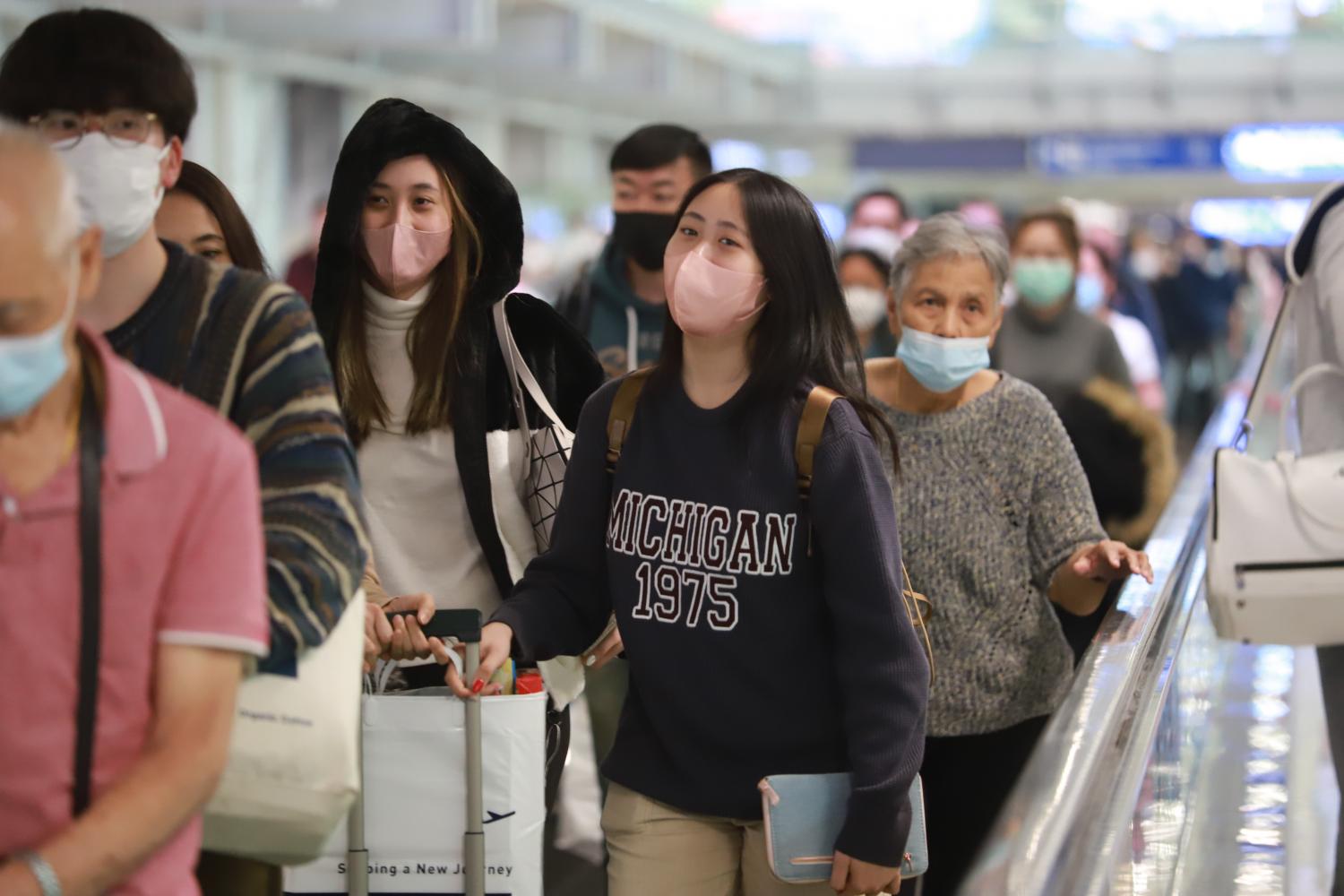
An influx of Chinese tourists is unlikely during the coming Lunar New Year holiday as not enough flights can be added in such a short time, while large tour groups are still awaiting an official announcement from the Chinese government, according to the Association of Thai Travel Agents (Atta).
Atta president Sisdivachr Cheewarattanaporn said only small groups of friends and families are expected to travel when entry restrictions on the mainland are lifted on Jan 8, as direct flights remain limited, with prices much higher than pre-pandemic rates of 10,000-20,000 baht.
"It is too soon to expect a massive Chinese flow in January as seat capacity remains scarce," said Mr Sisdivachr.
"Another turning point will be permission from Beijing to allow tour groups to travel outbound."
He said those who can travel immediately are tourists with valid passports, while those holding expired passports must queue up for the renewal process, which might take longer than the usual 10-day period as many people have invalid travel documents following three years of lockdowns.
However, Thailand refusing to test arrivals from China for Covid should help market sentiment among that nation's tourists, said Mr Sisdivachr.
"Many countries have imposed travel curbs against Chinese travellers," he said.
"Even though most of them who were already infected don't have concerns about additional steps for entry, they may avoid travelling to those countries if they do not feel welcomed."
Surawat Akaraworamat, Atta vice-president, said tourism operators in Northeastern Thailand have to prepare for Chinese tourists coming via the China-Laos high-speed railway.
Amid constraints on air connectivity, land transport is an option to fulfil tourism demand, which could help Thailand secure at least 300,000 Chinese tourists from January to March, and 5 million by the end of the year, he said.
In addition to tourists from the mainland, there are hundreds of thousands of overseas Chinese currently living in Laos, said Mr Surawat.
Thailand should be ready to facilitate immigration processes at major checkpoints, such as Nong Khai's border control near Vientiane and the Huai Kon border control in Nan, which can connect to Luang Prabang.
He said Thailand should not mandate specific rules against Chinese tourists as it could be viewed as discrimination.
Mr Surawat said he believes Chinese tourists are willing to take care of themselves while travelling.
Tourism operators have been requested to adopt measures to protect their employees, such as requiring workers to take daily swab tests.







